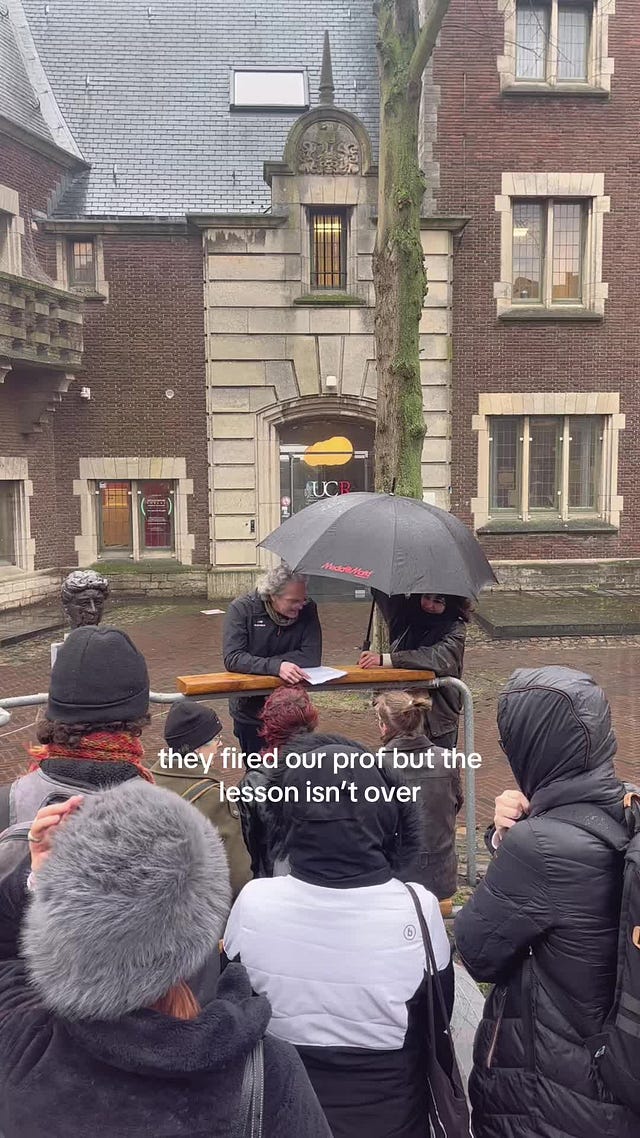How a Fired Professor Kept Teaching Anyway
A story, quote, and lesson about what real passion looks like
You don’t need a classroom to be a teacher.
That truth was put to the test for Professor John Friedman, an anthropology instructor at the University College Roosevelt, who was fired mid-lecture.
Most people would have packed up. Walked out. Processed the shock in private.
Friedman did not.
He calmly addressed his students, told them he would no longer be teaching at the university, and then invited them to follow him to the yard outside so he could finish the lesson. And they did.
In the weeks that followed, he kept showing up. First at public spaces. Then at local libraries. Then online. Wherever his students were willing to learn, he was willing to teach.
No university ID. No paycheck. No institutional backing. Just pure dedication to the pursuit of knowledge.
 Tiktok failed to load.
Tiktok failed to load.Enable 3rd party cookies or use another browser
We often define ourselves by the roles others give us: employee, student, manager, graduate. But Friedman’s story shows that the true power of a role comes not from a title, but from the decision to live it out with passion, regardless of the setting.
Teachers teach. Writers write. Leaders lead. And they do so whether or not they have the paycheck or the corner office to validate it.
It’s tempting to wait for the “perfect conditions” before doing what we feel called to do.
But what if those conditions never come? What if, instead, we simply begin—wherever we are, with whatever we have?
“I’ve just been fired but I am still their prof.”
- John Friedman
When we talk about passion, we often mistake it for excitement. But real passion isn’t about hype or motivation. It’s about persistence. Commitment. Doing the work, even when the title, job, or recognition disappears.
Friedman’s story may seem like a dramatic outlier. But it’s also a mirror. A mirror to reflect what we’re willing to do when everything comfortable is taken away. A mirror for what we really value, whether we keep going when no one’s watching.
We live in a time where so much of what we do is tied to credentials, status, and approval. But Friedman reminds us that the most important credentials are invisible: curiosity, resilience, and a love for the craft.
That kind of passion is recession-proof, rejection-proof, and even termination-proof.
It’s the kind of passion that teaches more by action than by lecture.
So now I ask you:
What motivates you to the point of wanting to do the work for free? How can you make it so that you’re able to do it while also getting compensated?




I felt goosebumps with this story and lesson. I consider that we all need the passion and enthusiasm to do what we know best, but especially the fruition inside ourselves to accomplish it. Congrats on a never ending lesson. Cheers and blessings.
This is a great story. Although sometimes the tough facts of life, including responsibilities to your family and their well being, make us not do what we believe we should do, I do think that there are times where people take the short route but not the sustainable one, and it falls apart later. Today´s society pushes people to try to prioritize "fast" more than "sustainable". I firmly believe that we need to make things in life "sustainable", and this article reminded me to focus on that.